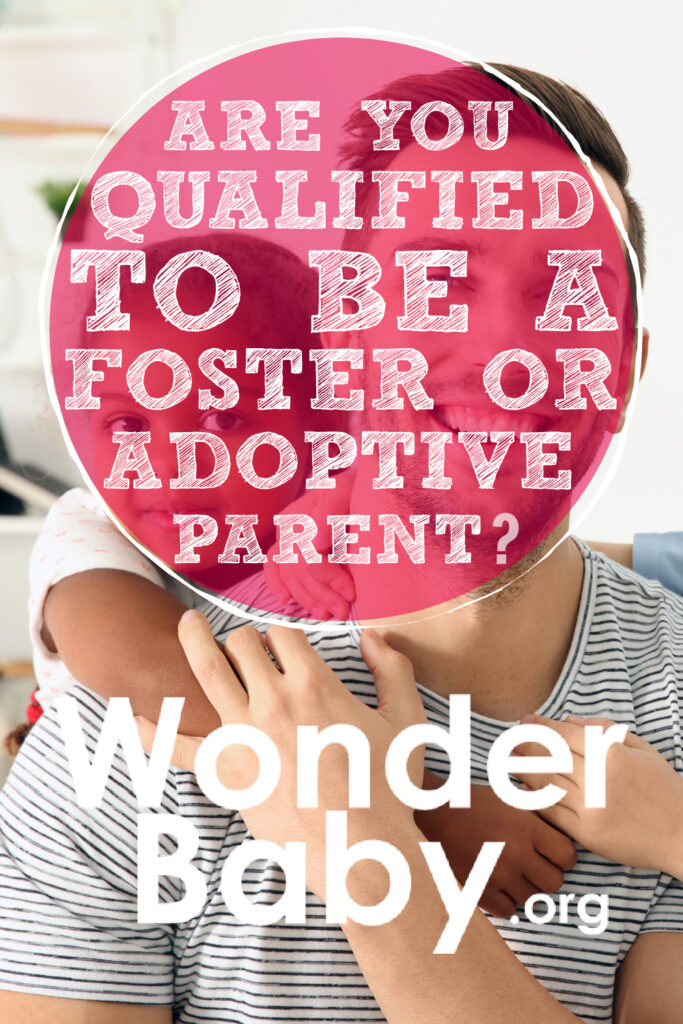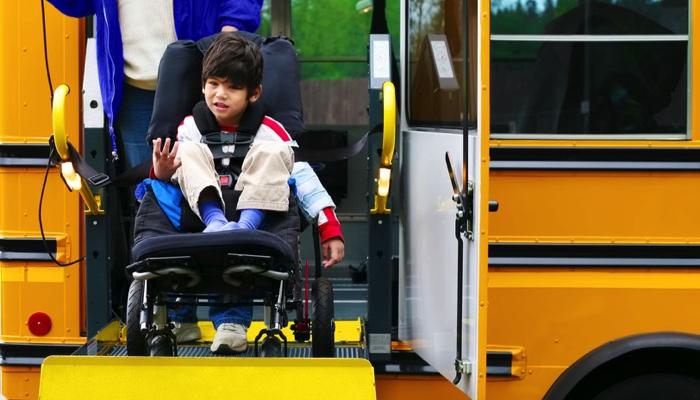Are You Qualified to Be a Foster or Adoptive Parent?

- Foster parents play an important role in supporting children that need a safe, stable, and caring temporary home.
- The laws and policies regarding qualifications to become a foster parent vary by state.
- All prospective foster parents or adoptive parents must complete a home study and be approved and licensed.
- If you don’t qualify to become a foster parent or decide you’re unable to provide full-time care for a child in your home at this time, there are other ways you can still support foster kids.
Raising children is hard. Raising children while struggling with substance use, homelessness, limited support, trauma, or limited skills is even harder. These risk factors increase the chances of a child experiencing child abuse or neglect.
When families cannot care for their children safely, they are placed in foster care. Foster care is a temporary arrangement for a child until they can be reunified with their family or placed with a permanent caregiver. Adoption in foster care is a lifelong commitment to a child that cannot be safely reunified with their biological family.
Foster parents play an important role in supporting children that need a safe, stable, and caring temporary home. According to the Department of Health and Human Services, 391,000 children and youth were in foster care in 2021 in the United States. State and local agencies are always looking for individuals and families to become foster parents.
The first step in becoming a foster parent is learning about the process and expectations for fostering, the qualifications to foster, and what disqualifies you from being a foster parent.
Who Are Qualified to Be a Foster or Adoptive Parent?

Foster parents come from many different backgrounds, cultures, and professions. You can be an individual or a couple, have children, or have no children. Foster parents must be willing and able to provide a safe, nurturing home environment.
The laws and policies regarding qualifications to become a foster parent vary by state, but according to the Child Welfare Information Gateway, there are a few qualifications most states require. Some of these basic qualifications for potential foster parents include:
- At least 21 years of age
- A citizen of the U.S. or a lawful immigrant
- Able to pass a background check
- Willing to work with the biological family, agencies, and providers
All prospective foster parents or adoptive parents must complete a home study and be approved and licensed. The goal of the home study is to thoroughly assess your personal characteristics and home environment to ensure that placing a foster child in your home is in the child’s best interest.
A home study typically involves completing a criminal background check of all household members, interviews, reference letters, and a home inspection. Most states require vet records on all pets in the home. During the application process, you will also be mandated to complete state-specific training for foster parents.
What Disqualifies You From Being a Foster Parent

If you meet the basic requirements of becoming a foster parent in your state, it doesn’t necessarily mean you will be approved or licensed. When completing the home study, certain things might disqualify you from fostering.
Required Training
Most licensing agencies will require some training before starting the licensing process. If you’re unable to meet the necessary training requirements, you will be disqualified from being a foster parent until all training requirements are completed.
Training topics typically involve understanding the licensing and policy regulations and your role as a foster parent. Additional mandated training might include understanding:
- Child Development
- Appropriate Discipline Techniques
- Trauma
- Attachment, Separation, and Loss
- Home Safety
Financial Stability
Although foster parents receive a small stipend to provide care to a child, families must have sufficient, reliable income to become licensed. How much foster parents get paid varies by state, but families must be able to financially meet their needs separately from the reimbursement.
Health
During the application process, all household members typically have to complete a health screening. The goal of this screening is to ensure potential families are of sufficient physical and mental health to care for children.
An older applicant’s age may be taken into consideration if there are concerns for physical well-being and the ability to care for a child. A potential foster parent might be disqualified from fostering if they are not free of communicable diseases, illnesses, or disabilities that would endanger or interfere with caring for a child.
Home
Another crucial part of the home study process is a thorough assessment of the applicant’s home. A licensing worker will do a walk-through of the home to ensure there is enough space to accommodate additional children and it is safe and clean. Your family will be denied if the home is deemed unsafe or inadequate for a child.
Background Checks
Most licensing agencies complete several different criminal background checks, including FBI fingerprinting, local police background checks, and checking the family care safety registry. A background check will be completed on all adult members of the household.
If you or a household member has a criminal history, it is important to discuss it immediately with a worker. Depending on your state laws, if your criminal history involves a non-violent crime or a drug-related offense from over five years ago, you might not be disqualified from the licensing process.
A criminal record involving a criminal conviction that could endanger a child’s safety would disqualify a family. In addition, a criminal history of substantiated child abuse or neglect or felony child abuse disqualifies potential families from getting licensed.
Other Possible Reasons You May Get Disqualified As A Foster Parent

It is important to be honest during the home study and licensing process. The licensing agency will deny your application if you provide false or misleading information.
Unsuitable Character
In addition to your health, home, and financial requirements, the human services agency is gathering information on your character. Employer and personal references are collected for the home study. If the agency feels that the applicant or another family member has an unsuitable character, they can deny the application.
Willingness To Be Part Of A Team
Several individuals and agencies are involved in ensuring a child’s health and welfare. As a foster parent, you would be an integral part of that team. You must be willing to work with the biological family towards reunification in addition to other agencies and providers involved in supporting the foster child.
Potential foster families must also have reliable transportation and accommodating schedules to meet a foster child’s unique needs and appointments. These might include team meetings, visits with biological parents, court, or medical appointments.
How Can You Become a Foster Parent if You Are Qualified?

If you meet the qualifications to become a foster parent and are interested in taking the next step, contact your local state agency or a private non-profit that licenses foster homes. Learn more about fostering by talking with other foster parents or attending a local information meeting or foster parent orientation.
How Long Does It Take to Be Approved as a Foster Parent or Adoptive Parent?
The time it takes to get approved and licensed varies by state. Most training and home study processes take at least 3-6 months. Thoroughly completing the application and all required paperwork can sometimes help reduce the time it takes to complete the licensing process.
Being approved and licensed as a foster parent does not mean you will immediately receive a placement. Licensing agencies want to ensure you are well-trained and feel competent to provide a stable environment for a child that has entered foster care due to abuse, neglect, or abandonment.
How Can You Support Foster Kids If Becoming a Foster Parent Isn’t An Option Right Now?
If you don’t qualify to become a foster parent or you’re unable to provide full-time care for a child in your home at this time, there are other ways you can still support foster kids.
You can make a huge impact on a foster child’s life by:
- Mentoring children in foster care
- Tutoring children in foster care
- Volunteering as a Court Appointed Special Advocate (CASA)
- Volunteering at your state agency or an agency that supports foster children
- Becoming a licensed respite provider (to give a foster family a short break)
There are several ways you can make a meaningful difference in a child’s life.

Related Posts

Adoption and Foster Care
How Much Do Foster Parents Get Paid?
Are you considering fostering but asking “How much do foster parents get paid”? We’ve got all the details to help you make a decision.

Adoption and Foster Care, Education
Transitioning an Adopted Child to School
Ellen writes about adopting her visually impaired son, Edy, and how they focused on helping him acclimate to his new home and family while also thinking about how they would...

Adoption and Foster Care
Emma’s Dilemma: A Book About Acceptance and Adoption
A little girl must complete a family tree for school but fears her classmates won't understand her own tree, which includes adoptive and biological parents.